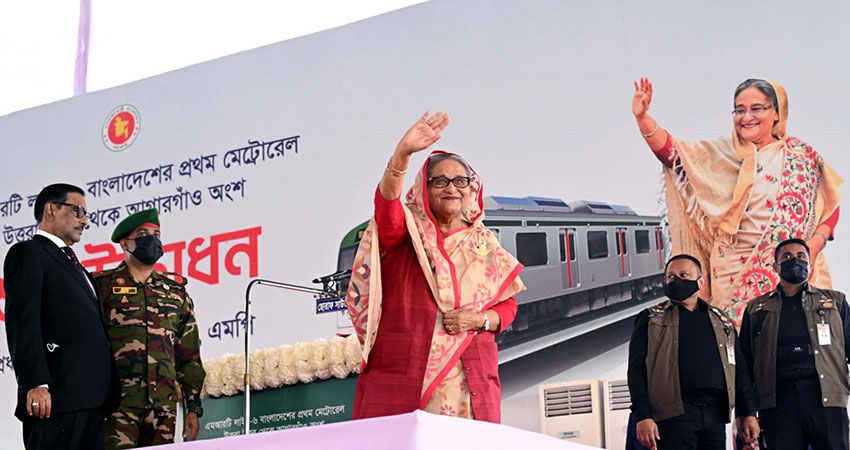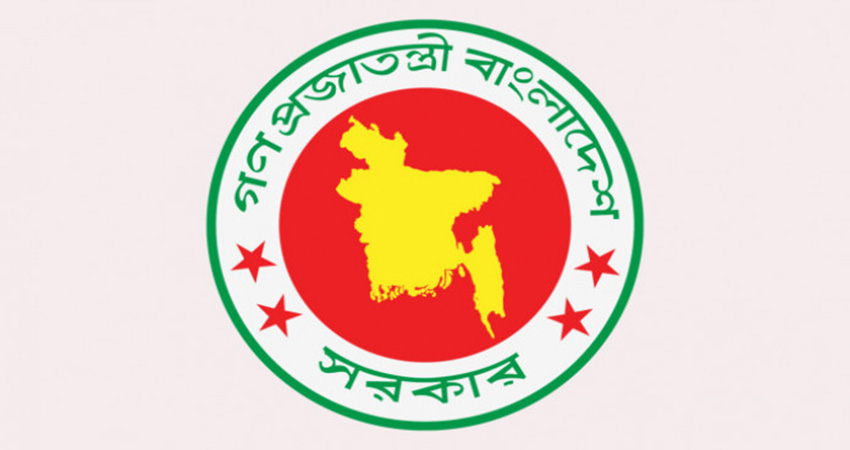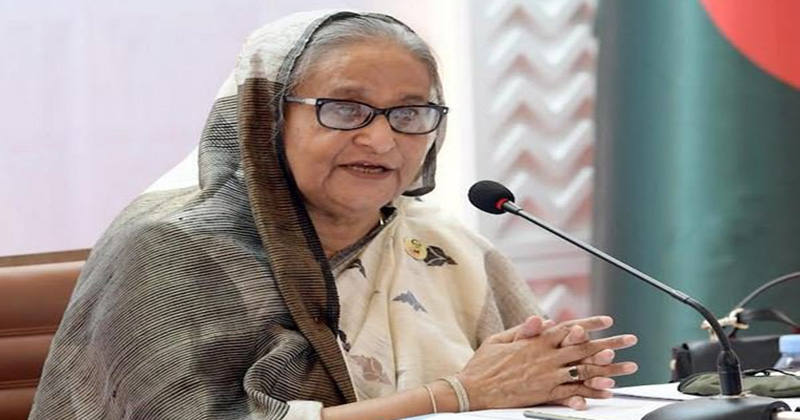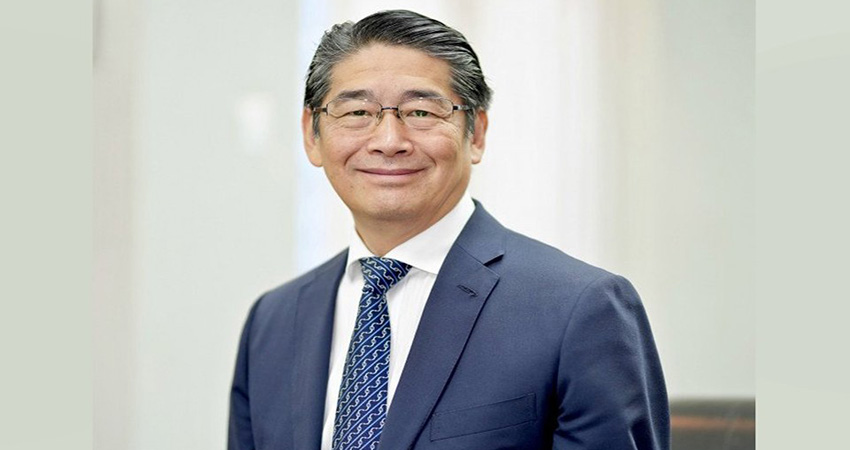The inauguration of the country's first-ever elevated metro rail in Dhaka is the latest feather to Bangladesh's cap, said Prime Minister Sheikh Hasina.
"With the introduction of metro rail today, another feather has been added to the country's cap of big achievements.
"I am grateful to the people as they voted for Awami League and allowed us to serve them," she said while opening the 11.73km part of the MRT Line-6 of the metro rail project from Diabari to Agargaon on Wednesday (28 December).
"This is a great moment for all of us. I would like to thank all those involved with the project.
"I would also like to extend my gratitude to the people who live near the construction area and express solidarity for their suffering, patience and cooperation," Sheikh Hasina added.
The premier, marking the occasion, also remembered the seven Japanese engineers who lost their lives when the worst terrorist attack in Bangladesh's recent memory took place in Holey Artisan Bakery on 1 July 2016.
She said that the identities of slain Japanese technical experts will be honoured in the Metro Rail establishment in Diabari, Uttara.
Citing four milestones that the country has achieved with its first-ever metro rail, the prime minister said that the metro rail itself is an achievement.
"The other milestone is that the metro rail runs on electricity. It is an environment-friendly mode of transportation.
"The third milestone is that the metro rail can be operated remotely. Lastly, the introduction of metro rail marks the advent of high-speed trains in the country," the premier added.
She said that her government has brightened the country's image across the globe by building the Padma Bridge with its own financing.
The prime minister's younger sister Sheikh Rehana was also present at the inaugural function.
Both sisters took the first official ride of the Metro Rail from Diabari (Uttara North) to Agargaon station after buying tickets.
Earlier, Sheikh Hasina released a commemorative banknote of Tk50 to mark the opening of the metro rail.
Initially, the metro train will run between 8am-12pm every day from Uttara to Agargaon stations without any break.
State-owned Bangladesh Road Transport Corporation (BRTC) will operate 30 double-decker buses to transport passengers from and to metro rail stations.
Of those, 20 buses will be operated on the Agargaon-Motijheel route via Farmgate, Karwan Bazar, Shahbagh and Gulistan while 10 buses will run from Uttara's House Building to Uttara's North station at Diabari via Abdullahpur.
The government-owned company DMTCL is implementing the metro rail projects.
Japan International Cooperation Agency (JICA) has been constructing the metro rail and providing soft loan for the project.
The construction work of the MRT Line-6 began in 2016.
The second section of metro rail from Agargaon to Motijheel and the third section from Motijheel to Kamalapur railway station will be launched in phases.
The metro rail from Agargaon to Motijheel will be introduced in December next year.
It will be able to carry 60 thousand passengers per hour and half a million passengers per day and the trains will arrive at each station every four minutes.
Bangladesh is set to embark on a new era of commuting with a new mode of transport as it will reduce immensely the public suffering by transporting more passengers in a limited time with providing comfort to the commuters.
Traffic congestion in the capital will be reduced after the complete operation of the metro rail as it will also increase revenue collection.
According to the project details, initially, some 10 sets of trains having six coaches will run from Uttara to Agargaon.
The staying time of the train at a station is yet to be decided.
At each station, the train will wait until the boarding and alighting of passengers is completed. Each train can run at a speed of 100-110km with 2,300 passengers. However, the speed will be lower in areas with bends.
After assuming power in 2009, the Awami League government took various initiatives to reduce public suffering by easing traffic congestion in the capital.



















